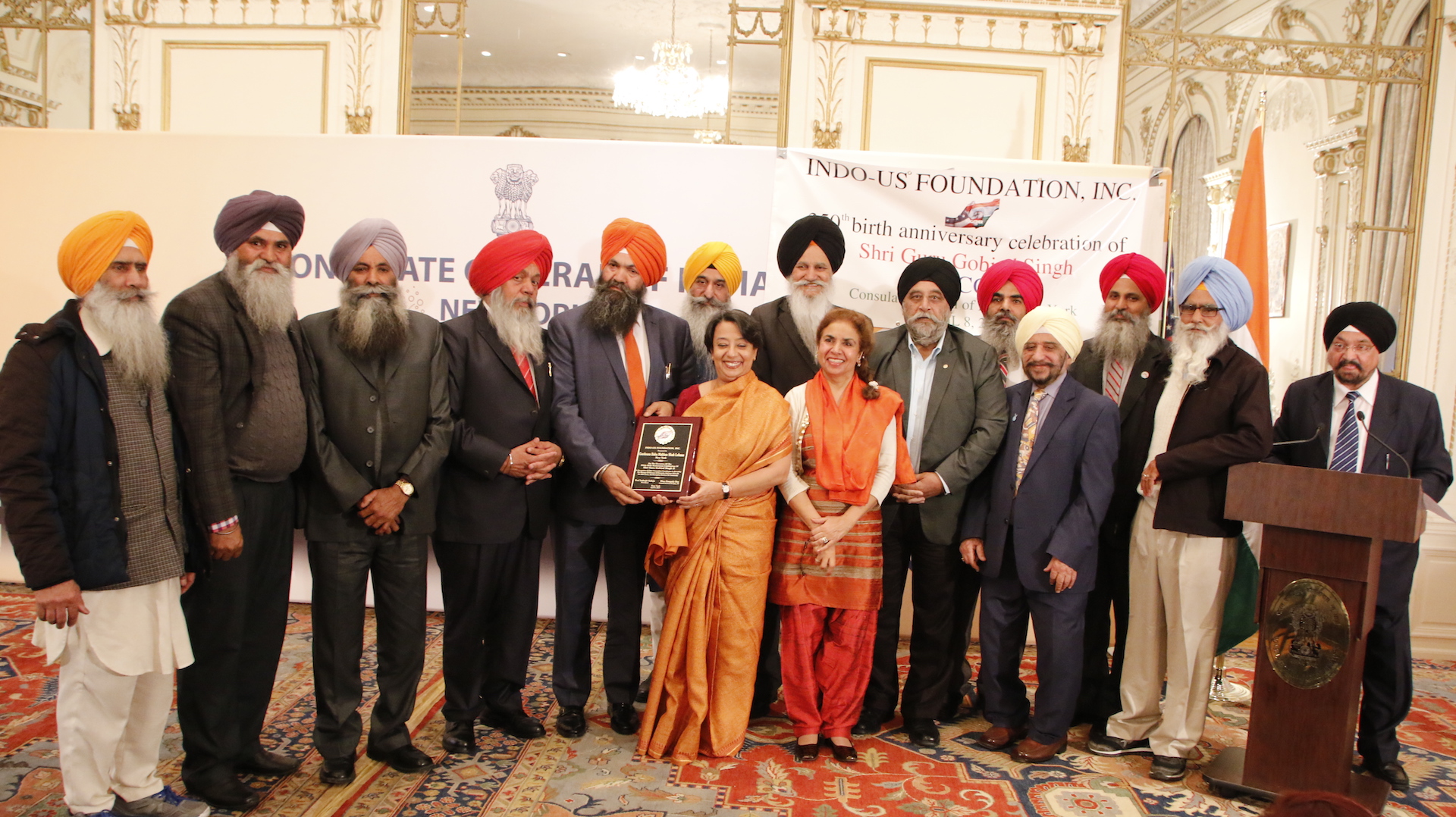
NEW YORK (TIP): The Indian American community and their friends from the mainstream came together to celebrate the 350th birth anniversary of the Tenth Master of the Sikhs, Shri Guru Gobind Singh.
It was for the first time that the birthday of a Sikh Master was celebrated at the Indian Consulate in New York.
Welcoming the gathering, the Consul General Riva Ganguly Das characterized Guru Gobind Singh who created Khalsa as the savior of the people against the tyranny of the rulers of the time. She recalled that as a young girl in Delhi she would often visit with her parents Gurdwara Bangla Sahib and Gurdwara Sisganj Sahib and listen to Gurbani which she found extremely soothing. She said she learnt about the wonderful traditions of the Sikhs from her visits to gurdwaras and from her readings on Sikhism.
Consul General Das, who is a Bengali, said Guru Rabiindra Nath Tagore, one of the greatest writers who was the first Indian to be honored with a Nobel Prize, the greatest name among Bengali writers, and one of the greatest sons of India, was influenced by Guru Nanak and wrote a couple of poems dedicated to the First Sikh Guru.
Consul General spoke appreciably of the great contribution of the Sikh community in India and abroad and said she was delighted to host the 350th birth anniversary celebration of Guru Gobind Singh at the Consulate. She added that she looked forward to many such events being organized to focus on Sikhs.
Ambassador Das chose to heap her praise on Prof. Indrajit S Saluja, President of Indo-US Foundation for organizing the event.
Welcoming the guest speaker, Dr. Nikky Guninder Kaur Singh, the endowed Crawford Professor of Religious Studies at Colby College, Waterville, Maine, the Consul General said Dr. Singh was a great scholar and an authority on religions and that it was a momentous occasion to have her at the Consulate to speak about the great Sikh Guru.
Earlier, welcoming the Consul General Prof. Indrajit S Saluja said Ambassador Das, in just over a year, had taken significant steps to streamline working at the Consulate, with the result that the image of the Consulate was refurbished. The consular services improved. Prof. Saluja attributed the rising approval rating of the consular services to the efforts made by the Consul General who has been traveling extensively in all 10 States under her jurisdiction and reaching out to people, under the “Consulate at your doorstep” program. Another significant step she had taken was to reach out to administration and politicians which helped not only in strengthening of relations between the administration and the Indian Community but also in strengthening of relations between the US and India.
Dr. Nikky Guninder Kaur Singh spoke at length about the personality and philosophy of Guru Gobind Singh and took questions.
Dr. Singh enlightened the audience on four aspects of the great Guru.
-
Universalism
With the founder Guru Nanak as his matrix, Professor Nikky-Guninder underscored Guru Gobind Singh’s vison of the Divine One. She cited verses from the Jaap Sahib carrying forward the first Guru’s Japji in breathtaking speed. Countless ways are envisioned by Guru Gobind Singh only to underscore the absolute singularity of the Ultimate Reality: anek hain phir ek hain.
-
Pluralism
Dr. Nikky-Guninder reminded us that for Guru Gobind Singh pluralism went beyond mere diversity and tolerance. The Guru acknowledged diversity as a mere consequence of different regions and climates — niare desan ke bhes ko prabhao hai. But we humans are ultimately alike — ekai nain ekai kan ekai deh ekai ban (Akal Ustat: 86). The Guru powerfully makes the plea that humans recognize (pahicanbo) that they all belong to the same one caste. Birth and biology justify human equality. He does not want his people to be afraid of one another; he does not intend for people to merely tolerate one another with different colored eyes or complexions or accents or texture of hair. We can hear an urgency in Guru Gobind Singh’s tone as he voices the two imperatives “pahicanbo” (recognize) and “janbo” (know).
manas ki jat sabai ekai pahicanbo….
ek hi sarup sabai ekai jot janbo (Akal Ustat, 85)
Recognize: humanity is the only caste….
Know: we are all of the same body, the same light.
Guru Gobind Singh imposed a moral obligation that people actively learn about others and recognize our fundamental humanity, which we desperately need to do in our dangerously divided and polarized world.
-
Activism
The visionary Guru was also an ardent activist. He was a phenomenal leader who fought battles against political and social oppression. But all his actions were inspired by the doctrine of the Divine One and his belief in the collective humanity.
His momentous creation of the Khalsa in 1699 was to free his Sikhs from their stifling past and provide them with a liberating new present. The Five Beloved had come to Anandpur from different regions of India and they belonged to different social classes. But by sipping the amrit from the same bowl prepared by the Guru, they pledged their allegiance to fight against political oppression and social injustice for the sake of liberty and equality of humanity. In Sikh memory, the Guru also revoked the oppressive patriarchal lineage by giving the surname “Singh” (meaning “lion”) to the men, and “Kaur” (meaning princess) to the women. In the new family of the Khalsa everyone was to share the same name and worth. Their sense of identity was strengthened by the five external markers of their faith, the five k-s.
His passing of Guruship to the sacred book is yet another unparalleled accomplishment. With his boundless humanity and divinity, the Guru made the historical and spiritual past perpetually present. The Guru Granth Sahib is the physical presence that bonds the Sikhs metaphysically with the Divine One, historically with their ten Gurus, and socially with their community. The spiritual and moral legacy of the glorious Guru resonates vibrantly in the everyday social, political, economic, and cultural life of the Sikhs.
-
Poetic Genius
Dr. Nikky-Guninder analyzed the poetic genius of the Tenth Guru. In the tradition of his spiritual predecessors, the Tenth Guru lyrically expressed the themes of love and equality, and a strictly ethical and moral code of conduct. Deprecating idolatry and superstitious beliefs and practices, he evoked the Singular Divine. Injustice was challenged through both word and deed. Poetry became the medium to impart a new orientation to his subjugated community. The fusion of the devotional and the martial was the most important feature of the philosophy of Guru Gobind Singh, and of his career as a spiritual leader and harbinger of a revolutionary impulse.
What was kindled by the Tenth Sikh Guru some 350 years ago in India, must be kept alive in the new millennium and in the new world.
Dr. Nikky-Guninder thanked the Consul General and her Sikh community for hosting the significant event in the Big Apple, and especially Dr. Indrajit Singh Saluja for his meticulous organization. Memories have a future. Our future is shaped by our past. By holding on to our rich past let us today enjoy the wonderful resources of our global society, let us together – Hindu, Muslim, Jew, and Christian, let us together —white, black, brown and yellow, let us together —men and women, old and young, let us together create a truly just and egalitarian future. Our fundamental principle should be love. In the experience of love, all the toxic stuff that clogs our arteries– hate, prejudice, stereotyping, hostility — dissolves. As the visionary Guru Gobind Singh says, jinni prem kio tinu hi prabh paiao – those who love, find the beloved.
A major attraction was screening of two documentaries, one on the life of Guru Gobind Singh, and, another on Vaisakhi. Both the documentaries were produced by Prof. Indrajit S Saluja. The audience was pleased and impressed with the documentaries.
The Bhangra group “Soormay” gave a scintillating Bhangra performance. The young students from St. John’s University created a nostalgic vision of Punjab where Bhangra is a must at every happy occasion. The dance simply soars the spirit and fills even the dead with life.
Those honored the occasion included Consul General Riva Ganguly Das, Dr. Nikky Guninder Kaur, Gurdwara Baba Makhan Shah Lobana, Bank of India, Air India, India Tourism, Singh & Singh Distribution and Balwant Hothi. Each was presented a plaque by Indo-US Foundation headed by Prof. Indrajit S Saluja.
Harpreet Singh Toor who represented Assembly Member David Weprin presented citations from NY State Assembly to Consul General Das and Dr. Nikky Singh.
Malini Shah who represented NY City Council Member Paul Vallone presented citations to the Consul General, Dr. Nikky Singh and Prof. Indrajit S Saluja
The event was co-hosted by the Consulate General of India and Indo-US Foundation, with cooperation from Gurdwara Baba Makhan Shah Lobana, Bank of India, Singh & Singh Distribution, Air India and India Tourism.
About Dr. Nikky – Guninder Kaur Singh
Dr. Nikky-Guninder Kaur Singh is the endowed Crawford Professor of Religious Studies at Colby College. Her interests focus on Sikh scripture. Dr. Nikky-Guninder has published several books and numerous articles. She is the author of the Birth of the Khalsa published by the State University of New York Press in 2005. She also authored Of Sacred and Secular Desire (2012), which is a translation of Punjabi poets — Sikh, Hindu, and Sufi. To name some of Dr. Singh’s other books: Sikhism (IB Tauris: 2011), Cosmic Symphony (2008), The Name of My Beloved (Penguin, 2001), The Feminine Principle in the Sikh Vision of the Transcendent (Cambridge University Press, 1993), Metaphysics and Physics of the Guru Granth Sahib (Sterling 1981). Her views have also been aired on television and radio in America, Canada, England, Ireland, Australia, India, and Bangladesh. She serves as a trustee for the American Institute of Indian Studies, and is on the editorial board of several journals including the History of Religions, the Journal of the American Academy of Religion, and Sikh Formations. She came to America as a young teenager to attend a girls’ prep school in Virginia, got her BA from Wellesley College, her Masters from the University of Pennsylvania, and her PhD from Temple University. Professor Nikky-Guninder is currently working on translations from the Guru Granth Sahib for Harvard University Press.


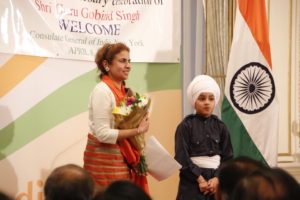
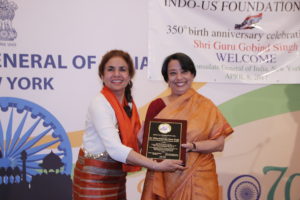
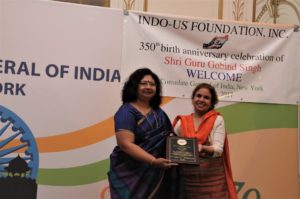
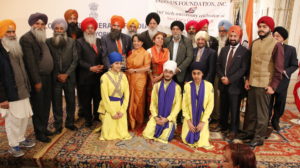
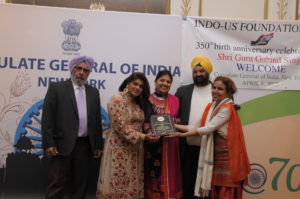
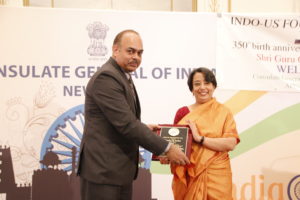
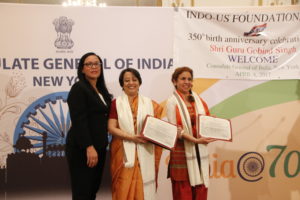
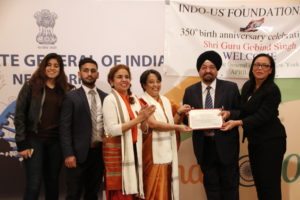
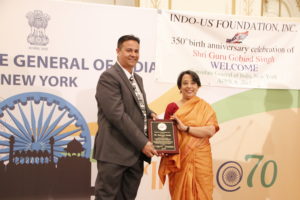
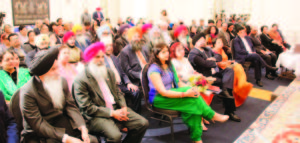
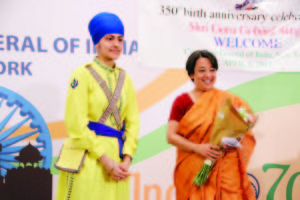
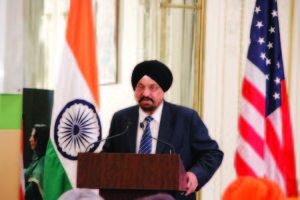
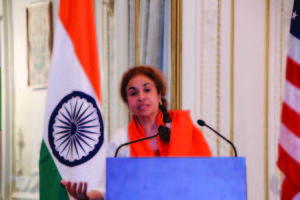
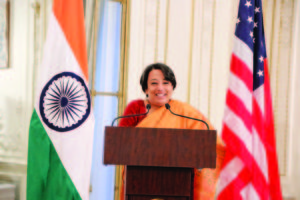
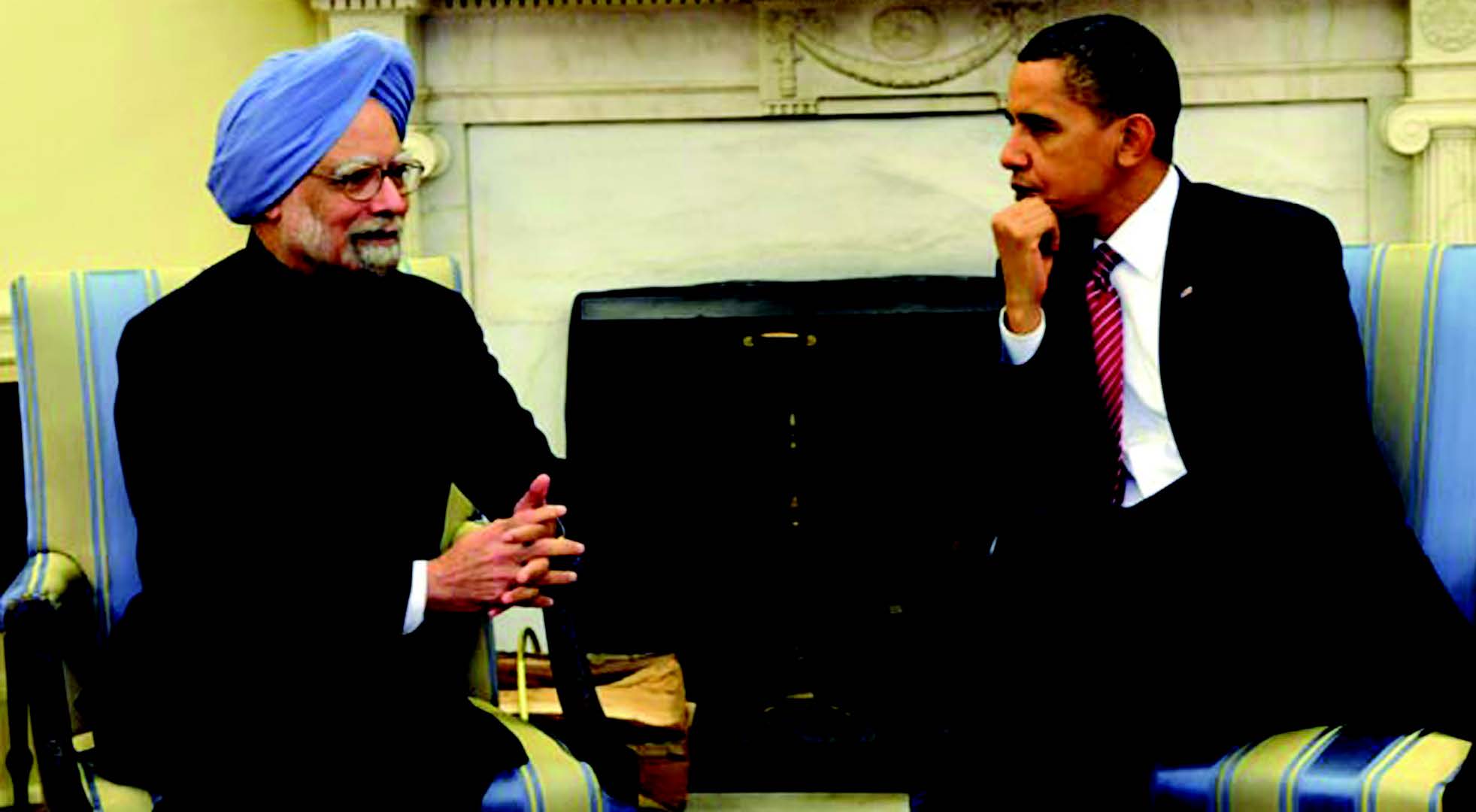
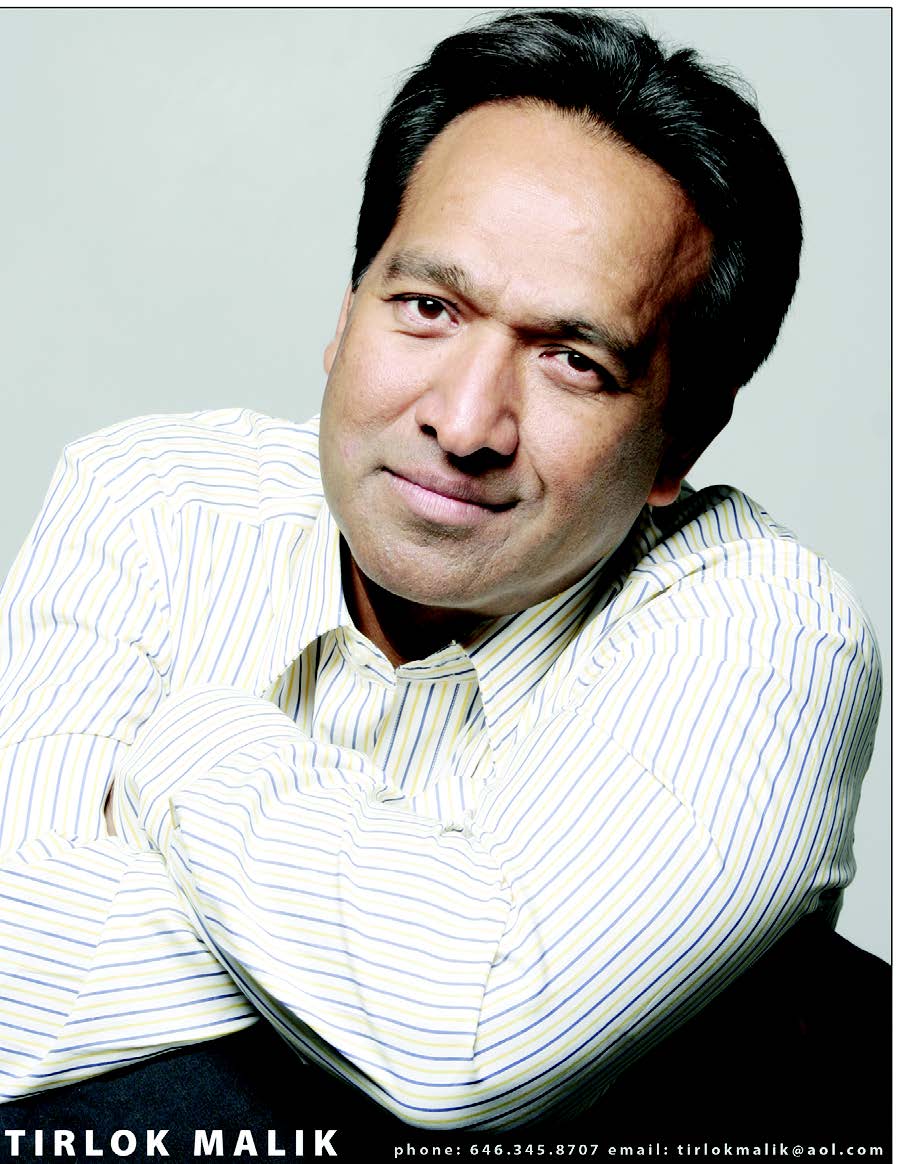

Be the first to comment